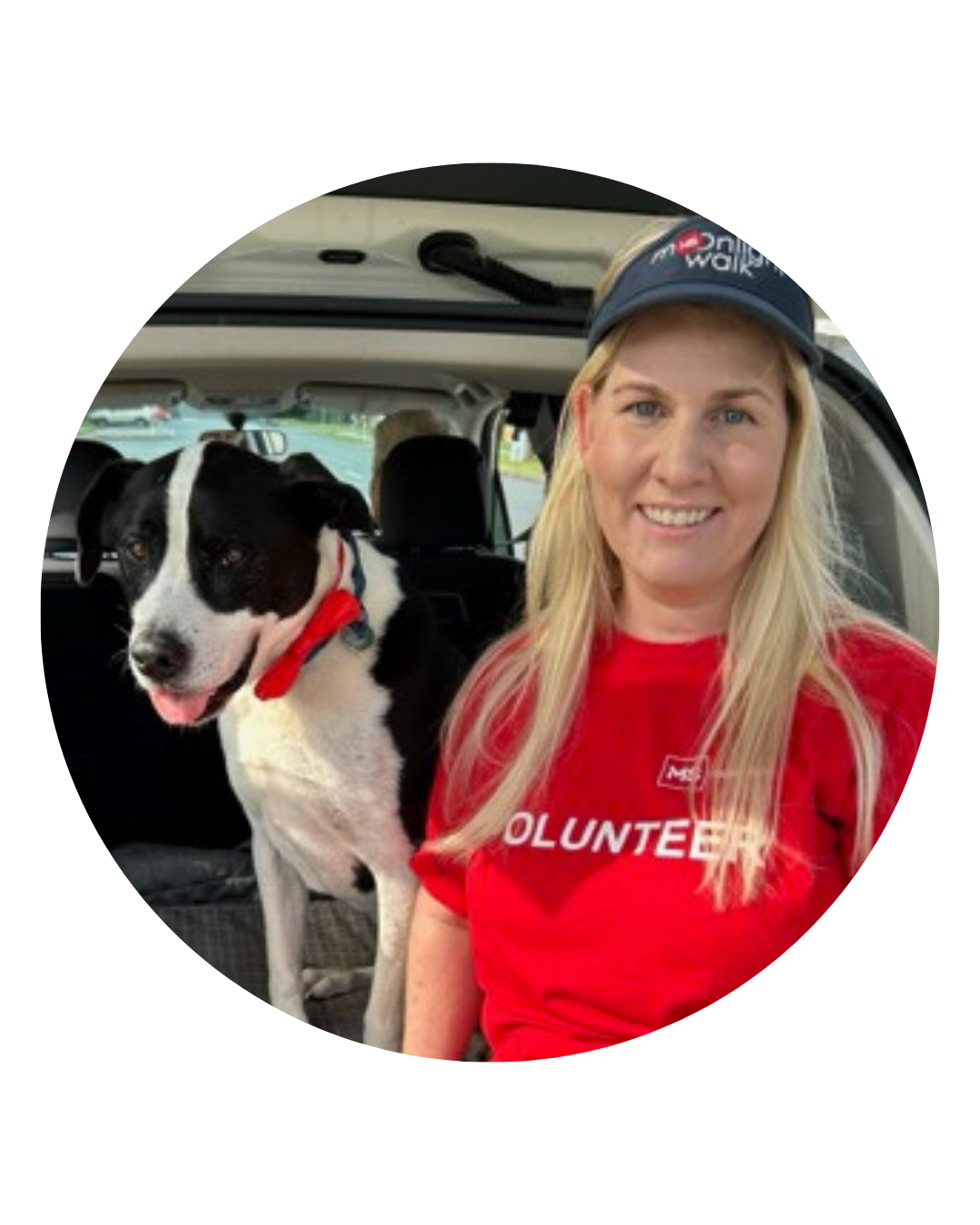
Meet Aimee
“I don’t go out partying – I worry about whether I can wake up and walk.”
For 20-year-old Aimee Segal, this captures what it’s like living with multiple sclerosis (MS) as a young woman. While most people her age are busy planning nights out, Aimee is focused on managing fatigue, avoiding heat, and listening to her body – every single day.
Her journey with MS began long before her diagnosis. At just seven years old, Aimee fundraised for MS Queensland through a Swimathon, never imagining that years later, she’d be living with the very condition she was trying to help fight.
On Christmas Eve 2020, when she was just 15, Aimee woke with numbness, slurred speech, and facial drooping. Hours later, she was diagnosed with MS.

Meet Griselda
When a team of more than 70 walkers, led by Banyo woman Griselda Quaggin, joined last year’s MS Moonlight Walk, their incredible $10,000+ fundraising effort was only part of the story. For Griselda, completing the 6km walk was more than a personal milestone - it was a powerful reminder that, surrounded by the love and support of family, friends and MS Qld, this is not a battle she has to fight alone.
Griselda’s Multiple Sclerosis (MS) journey began back in October 2023 with a strange tingling in her feet.
“I’d arrived at work that morning as a fit and healthy woman, but on the way home I struggled to walk the 500 metres from Adelaide Street to Central Station. That weekend, the tingling spread up to my waist and my mobility just got worse and worse; I was a fit 41-year-old who, out of nowhere, couldn’t even walk up the road.”

Meet Daryl
When Daryl Cullen first discovered MS Queensland, he was in a dark place, living “like a hermit” and experiencing up to 20 falls a day. But, with just one call, everything changed.
“All of a sudden, we had everyone on the phone, offering to do this and organise that. We’d gone through so many years without help that it was completely overwhelming.” Daryl said.
Having had his first stroke in 2014 and his second two days before Christmas 2017, Daryl was subsequently diagnosed with epilepsy and, later, Parkinson's.
“My wife, Cathy, has always been there for me. But I used to get into that dark area where I thought if I wasn't here, she wouldn't have to worry and look after me. I wanted to go for a long walk and never come back.”
All it took to turn things around, Daryl says, was access to the right people with the right expertise.

Meet Karryn
As Karryn prepares to mark 10 years since her first episode of Multiple Sclerosis (MS), this year’s MS Moonlight Walk isn’t just an opportunity to connect and give back, but a statement of intent.
“One of my favourite quotes I try to live by is, ‘sometimes you have to let go of the picture of what you thought life would be like and learn to find joy in the story you are actually living’,” Karryn said.
“Day-to-day I try to be positive about my diagnosis, but I believe putting my own story out there and being raw and authentic with my experience is important to raise awareness and fundraise for support, research and hope!
“By sharing my journey, I hope others learn more about this often invisible but debilitating neurological condition but also see how the donations raised through the MS Moonlight Walk helps to support people living with MS.”




